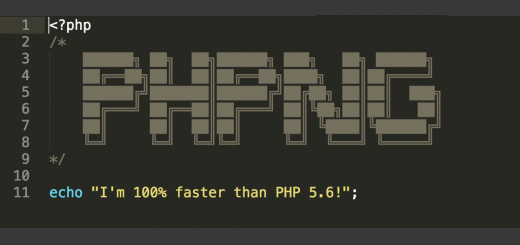Remote Content Shortcode
Note: This plugin is now part of the WordPress Plugin Repository as Remote Content Shortcode.
The Remote Content Shortcode plugin will enable a shortcode to display remote content embedded into a post or page. In fact, it is being used to embed the code below from my SVN server. To use it, just place the code in your page where you want to remote content to be placed.
[remote_content url="http://www.example.com"/]
By default this will just fetch the content and drop it straight into the page, which isn’t always ideal (like when you are using a code formatter like I am). Because of this, there are a few more parameters you can pass to Remote Content Shortcode:
url– the url that you want to request.method=[ GET | POST ]– set the request type, defaults toGET.timeout=[ 0-9... ]– set the request timeout in seconds, defaults to10seconds.userpwd=[ username:password | post_meta | site_option | constant ]– the username and password to send forBASICauthentication. It is recommended to not set the username and password directly in the tag, as it will be visible on your site if this plugin is disabled, and instead use one of the other options. By order of priority, if the value matches a postmeta_keythemeta_valueis used, if it matches asite_optiontheoption_valueis used, and if it matches a constant the constant value is used, otherwise the data is passed as is. The format isusername:password.htmlentities=[ false | true ]– if you want to HTML encode the content for display set totrue, defaults tofalse.strip_tags=[ false | true ]– remove all tags from the remote content (after CSS selection).decode_atts=[ false | true ]– the SyntaxHighlighter plugin will HTML encode your shortcode attributes, soattr="blah"becomesattr="blah". This fixes it to the intended value when set totrue, defaults tofalse.selector=[ CSS Selectors... ]– the CSS selector or comma separated list or selectors for the content you would like to display, for examplediv.main-contentordiv.this-class #this-id, defaults to the entire document.remove=[ CSS Selectors... ]– the CSS selector or comma separated list or selectors for the content that you would like to remove from the content, for exampleh2.this-classordiv#this-id, defaults to no replacement.find=[ regex ]– use a PHP regular expression to find content and replace it based on thereplaceattribute, for example~http://([^\.]*?)\.example\.com~, defaults to disabled.replace=[ regex ]– the replacement text to use with the results of thefindregular expression, for examplehttps://\\1.new-domain.com, defaults to empty string replacement.cache=[true| false ]– set tofalseto prevent the contents from being cached in the WP-Cache/WordPress transients, defaults totruefor performance.cache_ttl=[ 0-9... 3600 ]– the cache expiration in seconds or0for as long as possible, defaults to3600seconds.
[remote_content url="http://www.example.com" method="POST"]
{ json: { example: request } }
[/remote_content]
This source files for Remote Content Shortcode are always up to date based on the trunk of the WordPress Plugin SVN repository.
remote-content-shortcode.php
<?php
/*
Plugin Name: Remote Content Shortcode
Plugin URI: http://www.doublesharp.com
Description: Embed remote content with a shortcode
Author: Justin Silver
Version: 1.5
Author URI: http://doublesharp.com
License: GPL2
*/
if ( ! class_exists( 'RemoteContentShortcode' ) ):
class RemoteContentShortcode {
private static $instance;
private function __construct() { }
public static function init() {
if ( ! is_admin() && ! self::$instance ) {
self::$instance = new RemoteContentShortcode();
self::$instance->add_shortcode();
}
}
public function add_shortcode(){
add_shortcode( 'remote_content', array( &$this, 'remote_content_shortcode' ) );
}
public function remote_content_shortcode( $atts, $content=null ) {
// decode and remove quotes, if we wanted to (for use with SyntaxHighlighter)
if ( isset( $atts['decode_atts'] ) ) {
switch ( strtolower( html_entity_decode( $atts['decode_atts'] ) ) ) {
case 'true': case '"true"':
foreach ( $atts as $key => &$value ) {
$value = html_entity_decode( $value );
if ( strpos( $value, '"' ) === 0 ) $value = substr( $value, 1, strlen( $value ) - 2 );
}
break;
default:
break;
}
}
$atts = shortcode_atts(
array(
'userpwd' => false,
'method' => 'GET',
'timeout' => 10,
'url' => '',
'selector' => false,
'remove' => false,
'find' => false,
'replace' => false,
'htmlentities' => false,
'params' => false,
'strip_tags' => false,
'cache' => true,
'cache_ttl' => 3600,
),
$atts
);
// convert %QUOT% to "
$atts['find'] = $this->quote_replace( $atts['find'] );
$atts['replace'] = $this->quote_replace( $atts['replace'] );
// extract attributes
extract( $atts );
// normalize parameters
$is_cache = strtolower( $cache ) != 'false';
$is_htmlentities = strtolower( $htmlentities ) == 'true';
$is_strip_tags = strtolower( $strip_tags ) == 'true';
$method = strtoupper( $method );
$group = 'remote_content_cache';
$key = implode( $atts );
$error = false;
if ( ! $is_cache || false === ( $response = wp_cache_get( $key, $group ) ) ){
// if we don't have a url, don't bother
if ( empty( $url ) ) return;
// change ampersands back since WP will encode them between the visual/text editor
if ( strpos( $url, '&' ) !== false ) {
$url = str_replace( '&', '&', $url );
}
// inherit params from the parent page query string
if ( ! empty($params) ) {
if (strpos($url, '?') === false) {
$url .= '?';
}
$qs = explode( ',', trim( $params ) );
foreach ( $qs as $q ) {
$q = trim( $q );
if ( strpos( $q, '=') !== false ) {
$p = explode('=', $q );
$q = trim( $p[0] );
$v = trim( $p[1] );
}
if ( isset( $_REQUEST[$q] ) ) {
$v = $_REQUEST[$q];
}
$url .= "&{$q}={$v}";
}
}
// apply filters to the arguments
$url = apply_filters( 'remote_content_shortcode_url', $url );
$content = apply_filters( 'remote_content_shortcode_postfields', $content, $url );
$ssl_verifyhost = apply_filters( 'remote_content_shortcode_ssl_verifyhost', false, $url );
$ssl_verifypeer = apply_filters( 'remote_content_shortcode_ssl_verifypeer', false, $url );
// get the user:password BASIC AUTH
if ( ! empty( $userpwd ) ){
global $post;
if ( false!==( $meta_userpwd = get_post_meta( $userpwd, $post->ID, true ) ) ) {
// if the userpwd is a post meta, use that
$userpwd = $meta_userpwd;
} elseif ( false !== ( $option_userpwd = get_option( $userpwd ) ) ) {
// if the userpwd is a site option, use that
$userpwd = $option_userpwd;
} elseif ( defined( $userpwd ) ) {
// if the userpwd is a constant, use that
$userpwd = constant( $userpwd );
}
/* lastly assume the userpwd is plaintext, this is not safe as it will be
displayed in the browser if this plugin is disabled */
}
// set up curl
$ch = curl_init();
// the url to request
curl_setopt( $ch, CURLOPT_URL, $url );
// follow redirects
curl_setopt( $ch, CURLOPT_FOLLOWLOCATION, true );
// set a timeout
curl_setopt( $ch, CURLOPT_TIMEOUT, $timeout );
// return to variable
curl_setopt( $ch, CURLOPT_RETURNTRANSFER, true );
// (don't) verify host ssl cert
curl_setopt( $ch, CURLOPT_SSL_VERIFYHOST, $ssl_verifyhost );
// (don't) verify peer ssl cert
curl_setopt( $ch, CURLOPT_SSL_VERIFYPEER, $ssl_verifypeer );
// send a user:password
if ( ! empty( $userpwd ) ) {
curl_setopt( $ch, CURLOPT_USERPWD, $userpwd );
}
// optionally POST
if ( $method == 'POST' ) {
curl_setopt( $ch, CURLOPT_POST, true );
}
// send content of tag
if ( ! empty( $content ) ) {
curl_setopt( $ch, CURLOPT_POSTFIELDS, $content );
}
// fetch remote contents
if ( false === ( $response = curl_exec( $ch ) ) ) {
// if we get an error, use that
$error = curl_error( $ch );
}
// close the resource
curl_close( $ch );
if ( $response ){
if ( $selector || $remove ){
// include phpQuery
include_once( 'inc/phpQuery.php' );
// filter the content
$response = apply_filters( 'remote_content_shortcode_phpQuery', $response, $url, $selector, $remove );
// load the response HTML DOM
phpQuery::newDocument( $response );
// $remove defaults to false
if ( $remove ) {
// remove() the elements
pq( $remove )->remove();
}
// use a CSS selector or default to everything
$response = pq( $selector );
}
// perform a regex find and replace
if ( $find ) {
$response = preg_replace( $find, $replace | '', $response );
}
// strip the tags
if ( $is_strip_tags ) {
$response = strip_tags( $response );
}
// HTML encode the response
if ( $is_htmlentities ) {
$response = htmlentities( $response );
}
} else {
// send back the error unmodified so we can debug
$response = $error;
}
// Cache the result based on the TTL
if ( $is_cache ) {
wp_cache_set( $key, $response, $group, $cache_ttl );
}
}
// filter the response
return apply_filters( 'remote_content_shortcode_return', $response, $url );
}
private function quote_replace( $input ){
if ( ! $input ) return false;
return str_replace( '%QUOT%', '"', strval( $input ) );
}
}
// init the class/shortcode
RemoteContentShortcode::init();
endif; //class exists



































Great plugin! Is ti possibile to get HTML which is loaded by Javascript as well?
The content is loaded by curl and parsed by PHP so unfortunately there is no Javascript engine to load any additional HTML.
This is really sweet, man. I like the code formatting. Great plugin and great post.